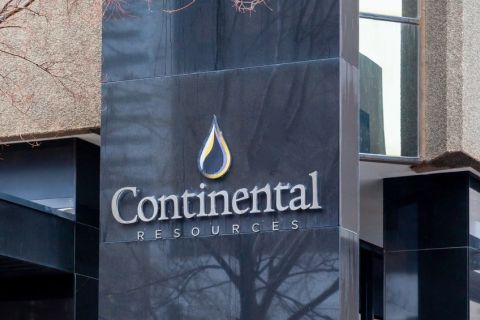German oil and gas company Wintershall Dea, which could be one of Europe’s largest listings next year, raised its full-year production target on Nov. 27 following a pickup in activity in the third quarter.
The company, created from the merger of the oil and gas divisions of German chemicals group BASF and Russian billionaire Mikhail Fridman's LetterOne, now expects to produce 640,000 barrels of oil equivalent per day (boe/d).
It had previously expected to produce 635,000 boe/d in 2019.
The company, which has said it wants to be ready for an IPO by mid-2020, appointed Deutsche Bank this year as the global coordinator for the listing.
“Wintershall Dea made good progress during our first full quarter since the merger. Strong operational performance gave us confidence to revise our full-year production guidance to 640,000 boe/d,” CEO Mario Mehren said.
Third-quarter production rose 6.1% to 613,000 boe/d, while earnings before interest, tax, depreciation, amortization, and exploration expenses (EBITDAX) fell more than a quarter to 708 million euros (US$780 million).
The decline was due to the significantly weaker commodity price environment, with prices for Brent and European gas down 20% and 60% respectively from a year earlier, the company said.
Wintershall Dea, owned by BASF and LetterOne in a 67-33 split, also cut its forecast for capital spending capex in 2019 to about 1.6 billion euros from up to 1.7 billion previously.
Equity capital markets bankers have said it may choose to wait until 2021 to launch its listing since volatile markets have prompted a slew of firms to pull plans for IPOs this year.
Bankers said the company also needs to take into account oil markets and geopolitical factors including the Nord Stream 2 gas pipeline—a project opposed by Washington - that Wintershall is backing financially when deciding the best timing for a listing. ($1 = 0.9073 euros)
Recommended Reading
Analysts: Diamondback-Endeavor Deal Creates New Permian Super Independent
2024-02-12 - The tie-up between Diamondback Energy and Endeavor Energy—two of the Permian’s top oil producers—is expected to create a new “super-independent” E&P with a market value north of $50 billion.
APA Closes $4.5B Callon Deal, Deepening Permian Roots
2024-04-01 - About two-thirds of Apache’s daily production will come from the Permian Basin after APA Corp. completed its $4.5 billion takeout of Callon Petroleum.
Marketed: EnCore Permian Holdings 17 Asset Packages
2024-03-05 - EnCore Permian Holdings LP has retained EnergyNet for the sale of 17 asset packages available on EnergyNet's platform.
Continental Resources Makes $1B in M&A Moves—But Where?
2024-02-26 - Continental Resources added acreage in Oklahoma’s Anadarko Basin, but precisely where else it bought and sold is a little more complicated.
Matador Hoards Dry Powder for Potential M&A, Adds Delaware Acreage
2024-04-24 - Delaware-focused E&P Matador Resources is growing oil production, expanding midstream capacity, keeping debt low and hunting for M&A opportunities.




